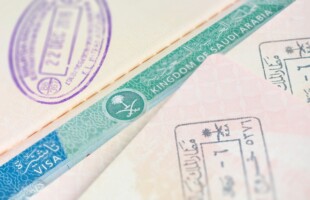Saudi Arabia recently issued decisions to nationalise some private-sector jobs and activities and established a Ministerial Committee to improve enforcement of Saudisation policies.
The Ministry of Human Resources and Social Development (MHRSD) warned that it will enact punitive measures on establishments that do not abide by the Saudisation rate or who attempt to conceal their Saudisation rates by hiring non-Saudis in professions different from what is listed on their work permits. A Ministerial Committee established in August will combat such “commercial cover-ups” and enhance coordination among authorities issuing business licenses and work visas.
According to the MHRSD, the new Committee is currently studying a proposal to nationalise grocery stores. Last week, the MHRSD began implementing a decision taken in March to nationalise 70% of nine activities in wholesale and retail outlets in the private sector, these include selling of:
- Coffee, tea, honey, sugar, spices
- Water and beverages
- Fruit, vegetables and dates
- Grains, seeds, flowers, plants and agricultural materials
- Books, stationery tools and student services
- Gift shops, luxuries, handicraft and antiques
- Toys and children's games
- Meat, fish, eggs, dairy products, vegetable oils
- Detergents, cleaning supplies, plastics and soaps.
The Ministry also announced that it will launch the first phase of nationalising engineering jobs next year. The MHRSD will nationalise 20% of engineering jobs in 117 professions. According to the ministry, it is expected that the decision will make more than 7,000 jobs available to Saudi nationals with salaries not less than SR7,000. The decision will only apply to private-sector establishments with five or more employees in engineering professions.
Earlier this year, the MHRSD enacted decisions to partially nationalise pharmacy jobs and taxi jobs. The Ministry is reportedly aiming to nationalise around 250,000 jobs by 2023.




